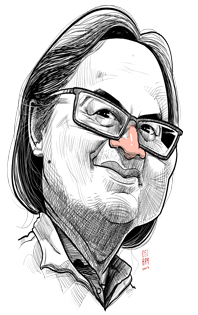Noer Fauzi Rachman
A book review submitted to Prof. Kate O'Neill in a course ESPM 259 "International Environmental Politics and Movements", Spring 2006, Department of Environmental Science, Policy and Management (ESPM), University of California at Berkeley. The author thanks Prof. Kate O’Neill for giving feedback on the draft version of this paper. The author also thanks Ann Hawkins for criticism on global ethnography and consulting on the English language of the final version of the paper.
- Published by : Princeton University Press
Friction, noun.
1 [U, plural] disagreement or angry feelings between people:
• Pay is a continuing source of friction with the workers.
• Creative differences led to friction within the band.
2 [U] the rubbing of one surface against another:
• Check your rope frequently, as friction against the rock can wear it down.
3 [U] TECHNICAL; the natural force that prevents one surface from sliding easily over another surface:
• Heat can be produced by chemical reactions or friction
Introduction
Ethnography is that field of anthropological research based on direct observation of and reporting on a people’s way of life. It is the basic methodology employed by cultural and social anthropologists and consists of two stages: field work and reportage. Field work is a term used for the process of observing and recording data; and reportage is the production of written description and analysis of the subject under study.
Historically, ethnography concerned itself principally with recording of the lives and habits of people from societies not of the observer’s own. In an entry on “Ethnography” in the International Encyclopedia of the Social & Behavioral Sciences,” M. H. Agar (2001:4857) writes that:
“(a)s one learned the community’s way of living, one said (that) one was ‘doing ethnography.’ Ethnography, then, named the process of learning what for the anthropologist was a new and different way of talking, thinking, and acting. When the work was done, a monograph was usually written—a report of this exploration into the community’s way of life. One could point to that book and say it was an ‘ethnography’ as well. Further, one could also say that the book was a description of the group’s culture. Traditionally, then, ethnography named both a research process characteristic of anthropology and a research product, often a book-length description, but at any rate a representation of the culture of the community in which the research had been done.”

